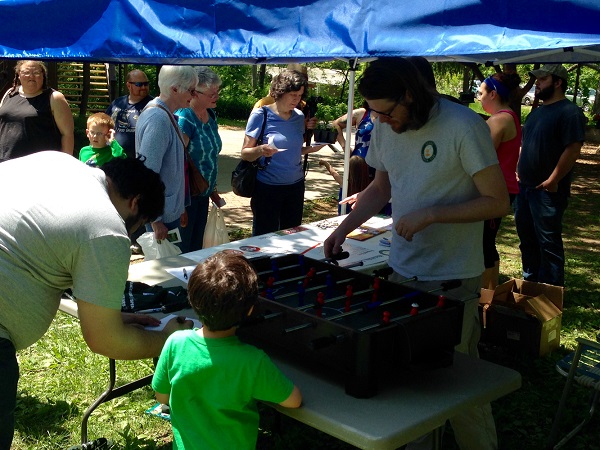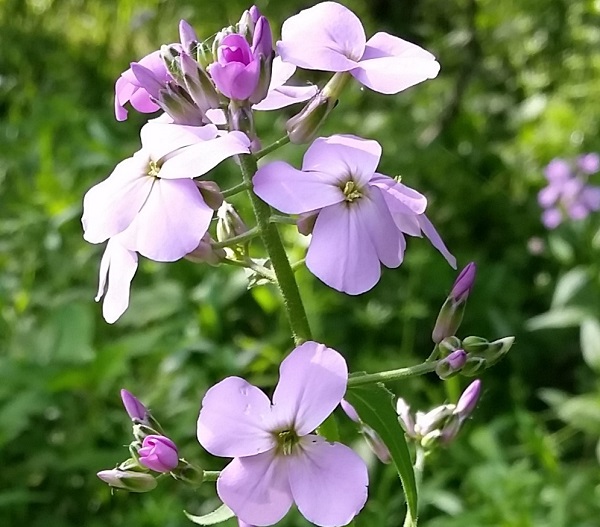Wild times for NCSE’s Science Booster Clubs! In just the last ten days we’ve interacted with about a thousand people at various events. In my last blog post I wrote about how I planned to bring evolution into the conversation while teaching about the natural world. As our organization is invited to more and increasingly diverse events, it’s been fun to figure out how to bring evolution—and climate change—into all kinds of conversations. At a fundraiser festival for the Humane Society, we talked about evolution from the starting point of phenotypic variance in dogs. At a nature center event about monarch butterflies, we showed how climate change plays into the complex stories of migratory species.

As usual, people have enjoyed these events. We’ve worked hard to develop exhibits that are friendly, non-political, and engaging, that introduce crucial scientific concepts as completely normal, well-accepted explanations for everyday phenomena. It turns out we can cover evolution and climate change seriously and openly when we get the tone right.
Many people expect outreach on these socially sensitive topics to come with a side of aggression. When I prepare volunteers to work at these events, tone training is where we spend the most time. Our policy is to refuse to engage in aggressive conversation. We have found that people who approach you looking for a fight are really jockeying for position. Their goal is not to learn something or engage in dialog. They want to use your message as an excuse for conflict. If they can get you to fight, they can show everyone around them that there is a fight. This only serves to add legitimacy to their position. And why should we let an extreme minority voice shape the public perception of these issues when we could be having fun?
On those rare occasions where we are approached by denialists looking for a fight, my suggestion is to redirect conversation to the weather, agricultural futures, or flowering plants. I find this strategy immensely satisfying. Disarming your opponent with goofy levels of friendliness has a lot in common with executing a really smooth judo throw. Not only do they wind up on the floor, they have no idea how they got there.

Just as we wouldn’t fight about the reality of potassium, in the Science Booster Clubs we’re not fighting about evolution or climate change. And because we’re not there to fight, it’s a lot easier for us to reach a broad audience.
Sometimes I wonder how well this particular brand of “Iowa Nice” will export to other regions of the country, where there are different cultural norms regarding conflict. I get the impression that people on the coasts are more willing to start swinging than we placid Midwesterners. Perhaps as we continue to expand I’ll have to develop new strategies, should opponents discover potential chinks in our impenetrable wall of pleasantness. But I think there’s a lot of enduring value in this calm and welcoming approach to outreach. Just like you learn in kindergarten—when you act like a friend, you’ll be surprised how many people want to be one.

